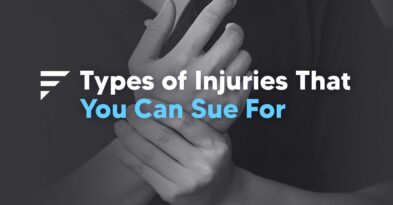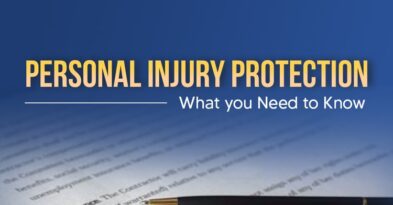In the Age of Social Media, Ignorance is Not Bliss: Your Posts Could Be Used Against You
In the Age of Social Media, Ignorance is Not Bliss: Your Posts Could Be Used Against You
Social Media
In the age of social media, it is important to remember that our digital footprint can have serious implications for our legal liability. From incriminating posts to compromising photos, what you put online can and will be used against you in a court of law. Online posts are often cited as evidence in civil and criminal cases, and it is important to understand the potential legal ramifications of your posts and how they could affect your legal standing. In this blog post, we will explore the ways that social media can be used as evidence in legal cases and how to protect yourself.
 The Influence of Social Media on Legal Cases
The Influence of Social Media on Legal Cases
In today’s digital age, it is impossible to ignore the profound influence of social media on virtually every aspect of our lives. From keeping up with friends and family to sharing our thoughts and experiences with the world, social media platforms have become an integral part of our daily routine. However, what many people fail to realize is that these seemingly harmless posts and updates can have a significant impact on our legal cases.
Social media has become a goldmine of evidence for attorneys in both civil and criminal cases. Platforms like Facebook, Twitter, and Instagram provide a wealth of information about individuals, their activities, and their state of mind. Attorneys can use this information to build their case, establish motive, or even impeach the credibility of witnesses or parties involved. A single post or photo can become a key piece of evidence that can sway the outcome of a trial.
Let’s take a hypothetical example. Imagine you were involved in a car accident in Florida and suffered significant injuries. You file a personal injury lawsuit against the at-fault driver, seeking compensation for your medical bills, lost wages, and pain and suffering. Now, imagine that you have been posting pictures and updates on social media, showing yourself engaging in physical activities, like hiking or playing sports. Your attorney may argue that these posts undermine your claim for damages, suggesting that you are not as injured as you claim to be. Suddenly, your innocent social media posts can be used against you, potentially jeopardizing the success of your case.
Another important aspect to consider is the influence of social media on insurance claims. Insurance companies are increasingly turning to social media to investigate and gather evidence regarding their policyholders’ claims. For instance, if you file a disability claim, but your social media profiles show you participating in physically demanding activities, the insurance company may deny your claim on the basis that you are not as disabled as you claim to be.
The influence of social media on legal cases cannot be understated. It is essential to recognize that what you post online can have serious implications for your legal liability. In the next section, we will delve into the admissibility of social media evidence in court and how it is treated by judges and juries. Stay tuned!
The Admissibility of Social Media Evidence in Court
Social media has become a ubiquitous part of our daily lives, and its impact extends far beyond our personal connections. In legal cases, social media evidence has gained significant relevance, often playing a crucial role in determining the outcome of trials. But what makes social media posts admissible as evidence in court?
The admissibility of social media evidence in court varies depending on the jurisdiction and the specific circumstances of the case. Generally, to be admitted as evidence, social media posts must meet the same standards as any other type of evidence. They must be relevant to the case at hand and must not violate any privacy or confidentiality rights.
In recent years, courts have increasingly recognized the value of social media evidence in both civil and criminal cases. However, it is essential to establish the authenticity of the posts and ensure that they have not been tampered with or manipulated. Courts have developed several ways to authenticate social media evidence, such as requesting information from the social media platform itself or relying on witness testimony to confirm the posts’ authorship.
Another factor that influences the admissibility of social media evidence is the expectation of privacy. Courts have generally held that individuals do not have a reasonable expectation of privacy in the content they share on social media platforms, as it is willingly exposed to a large audience. However, there are exceptions to this rule, such as when the user’s account settings are set to private or if the posts were obtained through unlawful means, such as hacking.
It is worth noting that even if social media posts are deemed admissible, their weight as evidence can vary. Judges and juries may consider the context in which the posts were made, their relevance to the case, and the credibility of the individuals involved. In the hypothetical car accident case in Florida, the court may examine the timing of the posts showing physical activity and assess whether they are consistent with the claimed injuries.
The Impact of Social Media on Jury Selection and Trial Publicity
In addition to its role as evidence, social media can also have a significant impact on jury selection and trial publicity. The widespread use of social media means that potential jurors are more likely to have pre-existing biases or opinions about a case based on what they have seen or read online. This can make it difficult to find an impartial jury and can potentially influence the outcome of a trial.
Jury selection is a crucial part of the legal process, as it ensures that a fair and impartial jury is chosen to hear the case. However, social media has made this task much more challenging. Jurors may have already formed opinions about the case based on information they have seen online, and it can be difficult to determine whether a potential juror’s social media activity could bias their decision-making.
Furthermore, social media can also lead to trial publicity that may jeopardize the fairness of a trial. When high-profile cases or controversial issues gain attention on social media platforms, it can be challenging to find jurors who have not been influenced by the media coverage. Even if potential jurors claim that they have not been influenced, it is challenging to ensure that their judgment is not clouded by the pre-existing biases they may have formed.
To mitigate these issues, judges may impose strict instructions on jurors to avoid any discussion or research about the case on social media platforms. However, this is not always foolproof, as jurors may still be tempted to browse the internet or engage in conversations about the trial. Additionally, it is virtually impossible to control what the general public says or shares about a case on social media, which can further impact the fairness of a trial.
The Risks of Posting about a Legal Case on Social Media

In the digital age, where sharing our every thought and experience has become second nature, it’s easy to overlook the potential risks that come with posting about a legal case on social media. While it may be tempting to vent your frustrations or seek support from your online community, it’s important to recognize the potential pitfalls and think twice before hitting that “post” button.
One of the main risks of posting about a legal case on social media is that your words can be taken out of context or misinterpreted. Even innocent comments or seemingly harmless updates can be twisted and used against you in court. Lawyers and opposing parties will scrutinize your every word, looking for any opportunity to weaken your case or undermine your credibility. What you intended as a simple expression of frustration may end up being used as evidence of malicious intent or a lack of credibility.
Another risk is that posting about your legal case on social media can violate court orders or confidentiality agreements. In some cases, parties involved in a lawsuit may be under strict orders to refrain from discussing the case or disclosing certain information. By posting about your case on social media, you run the risk of being held in contempt of court or facing legal consequences for violating these orders. It’s important to consult with your lawyer before posting anything related to your case to ensure that you stay in compliance with any legal obligations.
Additionally, posting about your legal case on social media can also have unintended consequences in terms of public perception. Remember that anything you post online can be seen by friends, family, coworkers, and even potential employers. Posting about your case may inadvertently tarnish your reputation or affect your professional relationships. It’s important to consider the potential impact on your personal and professional life before sharing sensitive information about your case.
Real-Life Examples of Social Media’s Effects on Legal Cases
Social media has had a profound impact on legal cases, and there have been numerous real-life examples that highlight the potential consequences of what you post online. One such case involves a man who claimed to have suffered a debilitating back injury that left him unable to work. However, his online profiles showed him participating in physically demanding activities like rock climbing and weightlifting. The court used these posts to question the validity of his injury claim, ultimately ruling against him.
A particularly high-profile example is the case of a teenage boy who was charged with a serious crime. During the trial, his social media posts, which included violent and hateful content, were presented as evidence of his state of mind and intent. The prosecution argued that these posts demonstrated a premeditated plan to commit the crime, ultimately leading to a conviction.
In yet another case, a woman filed a personal injury lawsuit after being involved in a car accident. However, her online posts showed her engaging in physically demanding activities and traveling extensively. The court used these posts to cast doubt on the extent of her injuries, resulting in a reduced settlement offer.
These real-life examples illustrate the importance of being mindful of what you post on social media, especially during legal proceedings. Your innocent posts or seemingly harmless updates can have significant consequences for your case. It is crucial to understand that social media is not a private space, and anything you post can be used against you. As the saying goes, “think before you post,” and remember that what you share online could come back to haunt you in a court of law.
The Fischetti Law Group is dedicated to vigorously pursuing personal injury and automobile accident claims throughout the State of Florida.
Call or text 833-MIKE-247 for a FREE consultation!
TESTIMONIALS
What People Say
Michael Fischetti is the best attorney in his field. He consistently kept me updated on my case and used his experience to make it quicker than any other attorney could.
I am so relieved that I had Michael Fischetti on my side. I will be recommending him to all of my friends.










